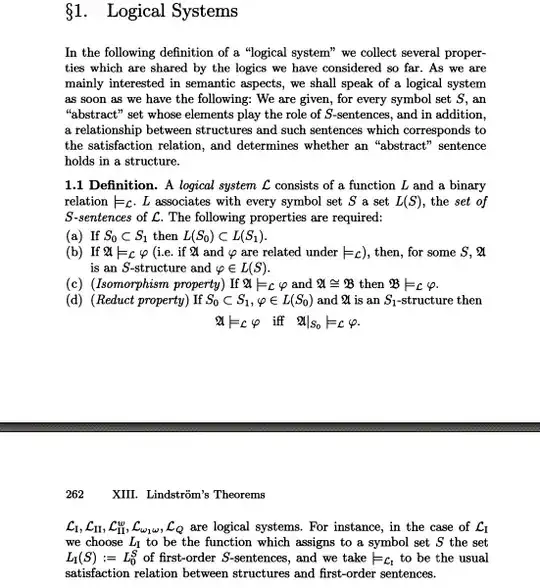From Herre & Schroeder-Heister's "Formal Languages and Systems", on p5
A formal system is based on a formal language $L$, endowing it with a consequence operation $C: 2^L\to 2^L$.
On p6 and p7, a deductive system is a formal system whose consequence operation can be equivalently replaced by a set of inference rules.
On p7
In logic one considers deductive systems over a language L whose expressions, called formulas, are built up from certain basic expressions by means of function symbols, predicate symbols and logical operators. In propositional logic, which for reasons of simplicity is considered in the following, formulas are built up from a subset P of L (the set of ‘propositional letters’ or ‘propositional variables’) and a finite set S of symbols of the alphabet Σ of L (the set of ‘propositional connectives’).
On p261 (also see below), in §1. Logical Systems in XIII. Lindstrom's Theorems in Ebbinghaus' Mathematical Logic
1.1 Definition. A logical system $\mathcal{L}$ consists of a function $L$ and a binary relation $\models_\mathcal{L}$. $L$ associates with every symbol set $S$ a set $L(S)$, the set of $S$-sentences of $\mathcal{L}$. (...)
Questions:
Is it correct that in Herre's article,
- a logical system is implicitly defined to be a deductive system which is a formal system, and therefore a logical system is purely formal? (If yes, can I call such a logical system "a formal logical system"?)
- a logical system is a system for a specific $S$?
Is it correct that in Ebbinghaus' book,
a logical system $\mathcal{L}$ has both a formal part (function $L$) and a semantic part ($\models_\mathcal{L}$)?
a logical system is a family of subsystems indexed by $S$?
Is it correct that the definitions of a logical system in the two sources are independent of each other? Is either definition not created based on the other?
Given a logical system (defined in the sense of Ebbinghaus' book), is it correct that its sybsystems do not necessarily correspond to formal logical systems (defined in the sense of Herre's article)? In other words, is a logical system not necessarily able to be formalized?
When does a formal logical system correspond to a subsystem in a logical system? Does that happen if and only if a formal logical system is a formal first-order logical system, and a logical system is the first order logical system?
There might be other definitions of a logical system. Which definition of a logical system is more popular in popular mathematical logic books? (For example, does Enderton's book ever define a logical system?)
Thanks.
